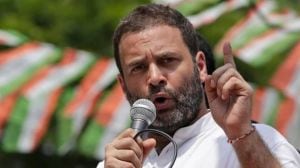Stay updated with the latest - Click here to follow us on Instagram
For urban water supply,state to go private
After handing over the power distribution of two cities to private hands,the state government is set to try out the model in urban water supply.
After handing over the power distribution of two cities to private hands,the state government is set to try out the model in urban water supply.
This will be done as a pilot project in one zone each of Lucknow and Allahabad. The authorities have already zeroed in Mumfordganj zone in Allahabad. In Lucknow,they are yet to identify the most critical area. The bids are to be invited soon.
The idea is to ensure round-the-clock water supply and to check its wastage, said a senior government official. Once successful,the project will gradually be implemented in other places,he added.
The government had started toying with the idea under the Jawaharlal Nehru National Urban Renewal Mission (JNNURM) after the Centre asked for innovative schemes to improve water supply.
At present,water requirement in the urban areas of the state is 6,500 million litres a day (MLD),against which the supply is only 4,575 MLD. Besides,there are about one lakh hand pumps in the urban areas.
The officials in UP Jal Nigam claim there is no shortage of water,the shortcomings lie in its management. Over 40 per cent water gets wasted either by users or during supply, an official said.
The problem in the rural areas is different the requirement there is 14,000 MLD and the supply is mostly through hand pumps.
As per the records of UP Jal Nigam,of 2.60 lakh rural habitations in Uttar Pradesh,only 30,000 are getting water through pipeline supply.
The government aims to ensure a hundred per cent safe drinking water supply through pipelines in both urban and rural areas. It is hoped that water supply through Public Private Partnership (PPP) model will provide the solution.
The key issues are also being incorporated in the first-ever state policy on drinking water,a rough draft of which has already been prepared. A water policy was formulated in 2002 but that focused only on irrigation water which comprises 97 per cent of water usage. Since funding for drinking water is mostly by the Centre,which has drawn guidelines for the same,work was being carried out so far under those guidelines, explained a senior officer. This is the first time a separate policy is underway for drinking water and sewerage.
Apart from other related features like metering,rainwater harvesting,among others,the prime focus of the policy will be round-the-clock supply of safe drinking water to each civic body and each rural habitant, said the official.








